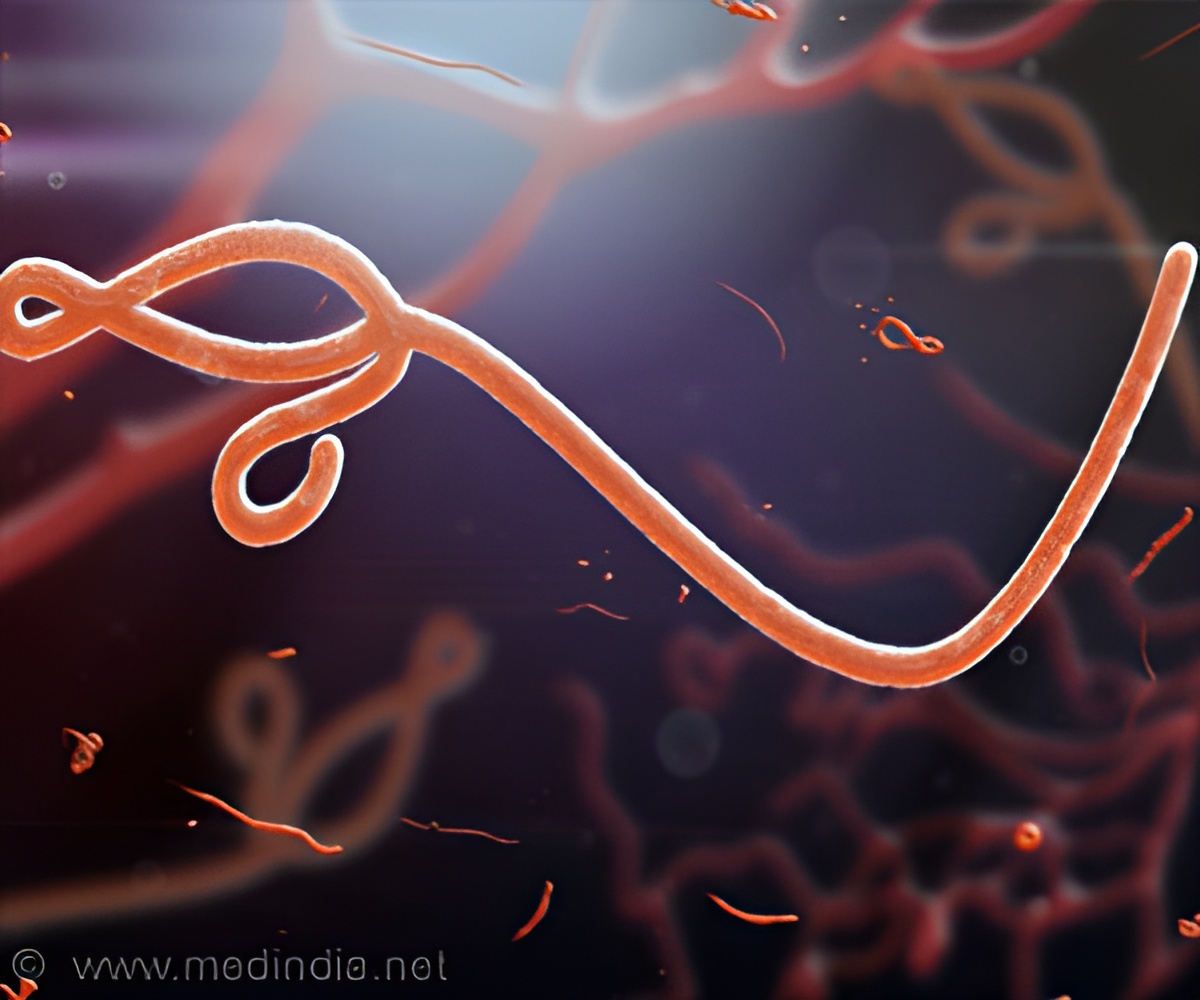Ebola virus affect T-cells directly through Tim-1 protein binding and causes inflammation to the immune system. Blocking the protein can reduce the severity of Ebola.

‘The severity of Ebola virus can be reduced by controlling and balancing the immune response following Ebola virus infection.’





When someone is infected with the Ebola virus, part of the reason that the resulting disease is so severe is because the virus causes parts of the immune system to malfunction.T-cells, which are a specialized type of white blood cells that seek and destroy virus-infected cells, are particularly vulnerable to the Ebola virus.
"In this study, we demonstrated the central role of a T-cell protein called Tim-1 in the development of Ebola virus disease," said senior author Alexander Bukreyev, a UTMB virologist in the departments of pathology and microbiology and immunology.
"Mice that were genetically engineered without Tim-1 became less ill when infected with Ebola virus and only one died, whereas all of the unmodified mice succumbed."
Bukreyev noted that the mice without Tim-1 had only slightly lower levels of the virus in their bodies compared with unmodified mice, suggesting that the Ebola virus needs the Tim-1 cells to spread infection.
Advertisement
A series of biological analyses of the mice with Tim-1 and immune cells isolated from human donors showed that Ebola virus directly binds to T-cells through Tim-1 protein binding and causes massive inflammation that thwarts the immune system.
Advertisement
"Understanding how the invading Ebola virus impacts the host's immune system is a very important step in developing targeted therapies for Ebola virus disease," said Bukreyev.
"The findings of this study indicate that drugs that block Tim-1 could be a potential new treatment for people with Ebola." "If we can find a way to limit the inflammatory response known as the 'cytokine storm' during Ebola infection, we can potentially improve disease outcome" said Patrick Younan, the lead author of the paper.
"Controlling and successfully balancing the immune response following Ebola virus infection is greatly important for reducing symptoms and fatal outcomes," said Mathieu Iampietro, the co-lead author of the paper.
Source-Eurekalert









